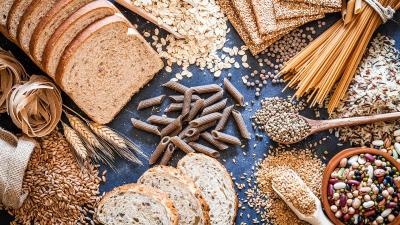House Farm Bill Puts Health of Food Stamp Recipients at Risk
Doctors Group Calls for Healthy Staples Amendment in Senate Farm Bill
WASHINGTON—The House passed a farm bill today that continues to put the health of tens of millions of Supplemental Nutrition Assistance Program participants at risk, says the Physicians Committee. The group is urging the Senate, which is expected to vote on its farm bill by the end of June, to introduce the Healthy Staples plan as an amendment, which would provide SNAP recipients the fruits, vegetables, grains, and legumes they need to fight obesity, heart disease, and diabetes.
“The House farm bill leaves SNAP nutrition stagnating and continues to put the health of tens of millions of SNAP recipients at risk,” says Physicians Committee director of nutrition education Susan Levin, M.S., R.D. “Now it’s up to the Senate to introduce the Healthy Staples plan to help end the diet disparity that’s causing SNAP participants to suffer disproportionally from diet-related disease.”
According to the USDA, SNAP participants are more likely to be obese than income-eligible nonparticipants. They also have an increased risk of death from heart disease and diabetes, compared to SNAP-eligible nonparticipants. A new Tufts University study finds that SNAP participants eat fewer fruits and vegetables and more processed meat than those not receiving SNAP assistance.
The Physicians Committee—a nonprofit with 12,000 doctor members—continues to support HR 4855, a bill introduced by Pennsylvania Rep. Matt Cartwright, which would create financial incentives for people on food stamps to purchase fruits and vegetables. The Physicians Committee also praises unrealized efforts by Rep. Tom McClintock of California and the Republican Study Committee to make food stamps healthier.
In May, the Physicians Committee released a poll that found 80 percent of respondents agreed that SNAP should focus on fruits, vegetables, beans, and grains instead of soda, chips, meat, cheese, and energy drinks. The American Medical Association has asked the USDA to incentivize healthful foods and discourage or eliminate unhealthful foods from SNAP.
Ms. Levin detailed Healthy Staples in “A Proposal for Improvements in the Supplemental Nutrition Assistance Program” published in the American Journal of Preventive Medicine. Healthy Staples would subsidize participating grocers who supply basic healthful foods: grains, vegetables, beans, fruits, and basic multiple vitamins. SNAP participants choosing solely from Healthy Staples would likely get about double the fiber, iron, and calcium than those following a typical American diet. A Healthy Staples participant would also consume 65 percent less fat and 85 percent less saturated fat, and the excess of 250 milligrams of cholesterol consumed daily would be reduced to essentially zero.
Healthy Staples is inspired by the USDA’s Women, Infants and Children program, or WIC, which is based on the use of packages that include foods deemed to provide good nutrition. When WIC began promoting more fruits, vegetables, and whole grains, childhood obesity declined for participants, according to a recent study in JAMA Pediatrics. Children make up nearly half of SNAP participants.
Media Contact
Jeanne Stuart McVey
202-527-7316
jmcvey[at]pcrm.org
Founded in 1985, the Physicians Committee for Responsible Medicine is a nonprofit organization that promotes preventive medicine, conducts clinical research, and encourages higher standards for ethics and effectiveness in education and research.







